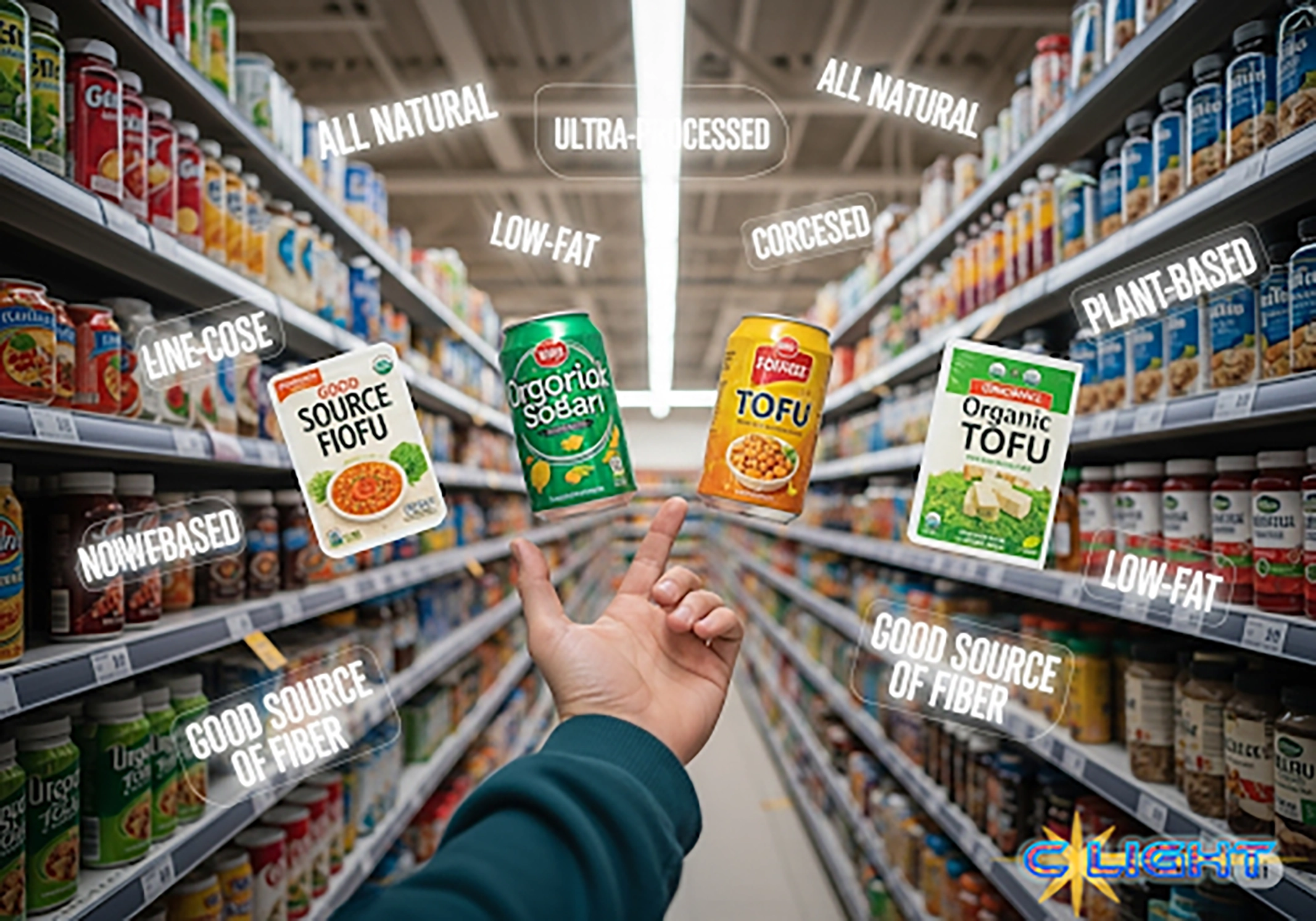Part I: The Scare
You have heard the terrifying headlines, and you have seen the alarming television segments. The message, delivered with breathless urgency, is simple and clear: ultra-processed foods (UPFs) are killing us. This is the conventional wisdom, repeated so often that it has achieved the status of unimpeachable fact. Esteemed bodies like the American Medical Association lend their authority to the narrative, warning that these “industrial creations” are linked to over 30 health conditions. The statistics are dire: 57% of the calories consumed by American adults, and a horrifying 67% of those consumed by children, come from these foods. We are told, in no uncertain terms, that UPFs are “tasty by design, but it’s all a trick,” and that they are, in the devastating words of one preventive cardiologist, “better at preserving shelf life than human life.” This is the simple, scary story we are constantly told. It is also a lie—not because UPFs are harmless, but because the truth is far more complex, and has been conveniently ignored for years.
Part II: The Buried Science
The first crack in this simplistic narrative appears when one looks closer at the very research used to generate the scare. Rigorous analyses from institutions like the American Diabetes Association have concluded that the “ultra-processed” label, a catch-all for everything from hot dogs to whole-grain bread, is a blunt instrument that is scientifically weak. While it’s true that high overall consumption of UPFs is linked to poor health, the data reveals a crucial and inconvenient truth: different categories of UPFs have vastly different effects. For example, a massive Harvard study found that while ultra-processed animal products were associated with a higher risk of type 2 diabetes, ultra-processed whole-grain breads and cereals were actually associated with a reduced risk.
Crucially, this nuanced understanding is not new science that has been hidden under a rock. For over a decade, careful research has pointed to this complexity. But this more difficult truth has been consistently buried beneath an avalanche of alarmism, often by influential people who have chosen to ignore the science to make themselves look better. The simple story is easier to sell.
Part III: The Grift of Oversimplification
So why has this nuanced science been so thoroughly ignored in the public sphere? The answer lies in a cynical ecosystem of “influential people”—media personalities, wellness gurus, and political actors—who profit, whether financially or through public acclaim, from simple, scary narratives. It is a grift of oversimplification, and it thrives on sowing distrust in established, complex science. A prime example of this pattern is Robert F. Kennedy Jr., a man who has built a massive political platform by manufacturing a “credibility deficit” for the entire scientific and medical establishment. His method, which involves cherry-picking data and promoting conspiracy over complexity, is the same tactic used by those who benefit from a panicked and confused public.
This brings us to a crucial rule for navigating the modern world of information: any time someone other than a board-certified, practicing physician tells you to stay away from something in total, that is your cue to start asking difficult questions. We have become far too comfortable accepting health advice from people who appear on television, assuming they have been properly vetted. We must stop doing that. Most have not been vetted at all, a failure of journalistic and regulatory duty that is so profound we now have an idiot running the Department of Health and Human Services.

Part IV: The Real Culprit?
But what if even this more nuanced debate about good vs. bad processing is, itself, a distraction from the real issue? A growing body of research, as highlighted in a recent, provocative article in MedPage Today, suggests that the most important factor is not the level of mechanical processing a food undergoes, but its source. The true dividing line, the evidence suggests, is not processed vs. unprocessed, but animal-based vs. plant-based.
This framework completely reframes the data. The same Harvard study that showed a risk from total UPFs revealed that the risk was driven entirely by animal-based products. Plant-based UPFs were largely exonerated or even protective. The authors of the MedPage piece offer a brilliant and powerful concept to explain this: “biological processing.” When a chicken eats low-fat corn, its digestive system “processes” it, sequestering fiber, adding cholesterol, and increasing the fat content from 14% to 55% of calories. An animal’s body, they argue, is as much a food processor as any factory. This suggests that pointing a finger at a fortified whole-grain cereal while ignoring an “unprocessed” chicken wing is to fundamentally miss the point.

Part V: The Practical Takeaway
Navigating this landscape of misinformation and oversimplification can feel exhausting. But armed with a more sophisticated understanding, the path forward becomes clearer. The goal should not be a fearful, absolute avoidance of a poorly defined category like “ultra-processed foods.” The goal is to become a more discerning and critical consumer.
The evidence still strongly suggests that avoiding the worst offenders—sugary drinks, processed meats, and foods high in trans fats—is a wise and effective health strategy. But rather than obsessing over the “processed” label on a loaf of whole-wheat bread or a container of yogurt, a more sensible heuristic is to prioritize whole, plant-based foods whenever possible. The real takeaway is not a new set of rigid rules, but a new mindset. Read the ingredients. Question the source of your information. Cook when you can. And be deeply skeptical of anyone selling simple answers to complex problems. The goal is not to have a perfect diet, but to have a resilient mind, capable of defending itself against the constant grift of oversimplification.
Discover more from Clight Morning Analysis
Subscribe to get the latest posts sent to your email.










